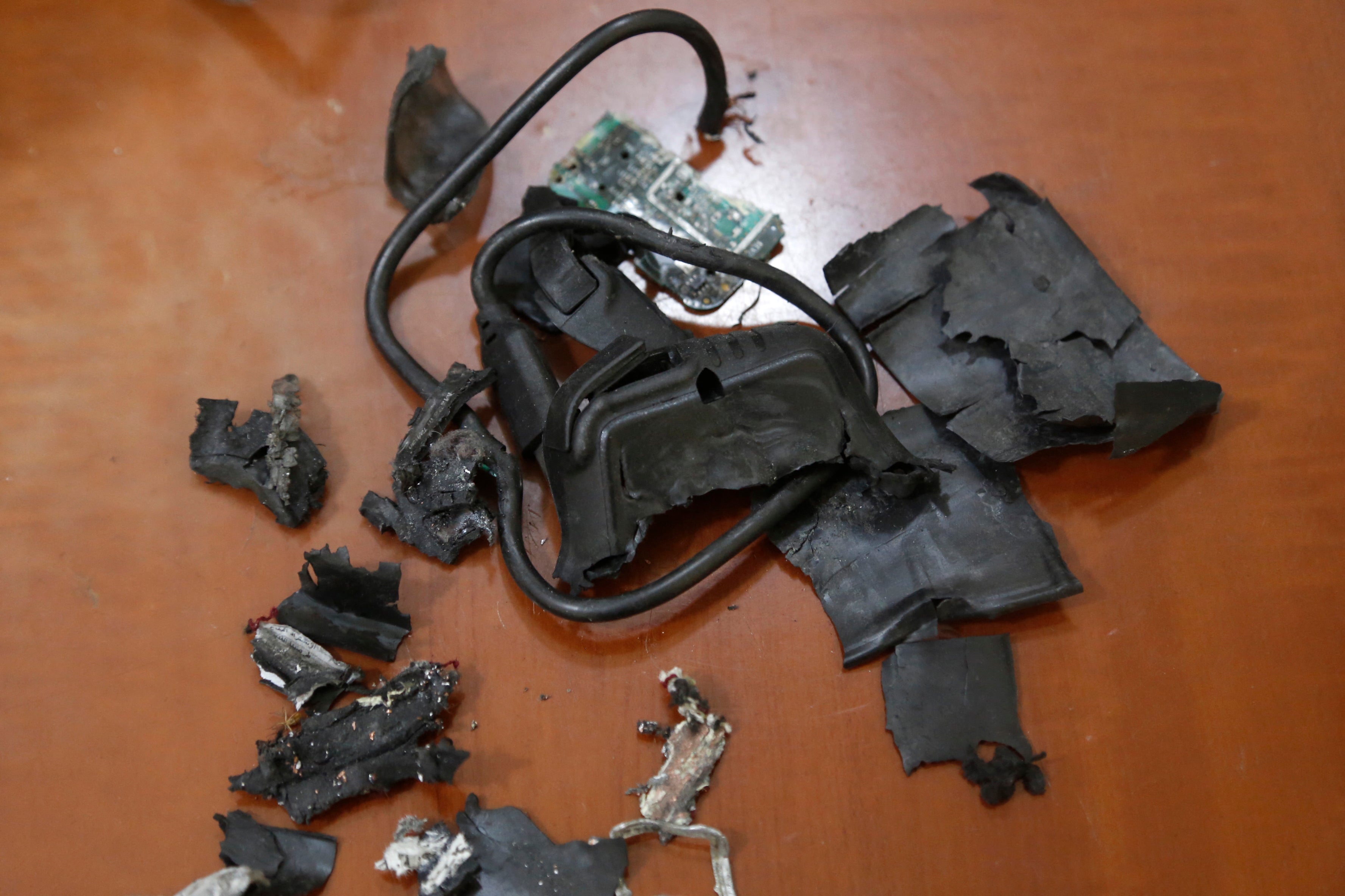Are our smartphones safe? Exploding pagers pose new threat but your phone is probably safe, experts say
Deadly attacks rely on specific nature of pagers and the way they are delivered, experts say

Your support helps us to tell the story
As your White House correspondent, I ask the tough questions and seek the answers that matter.
Your support enables me to be in the room, pressing for transparency and accountability. Without your contributions, we wouldn't have the resources to challenge those in power.
Your donation makes it possible for us to keep doing this important work, keeping you informed every step of the way to the November election

Andrew Feinberg
White House Correspondent
Pagers across Lebanon have exploded in what appears to be a highly advanced and unexpected deadly attack.
At least 12 people are dead and thousands have been injured in the incident. Both Hezbollah and the Lebanese government blamed Israel, while the country refused to comment.
The attack began on Tuesday, when thousands of communications pagers used by Hezbollah members rang out and then exploded. It appears that the devices had been rigged to be remotely detonated, injuring the people around them.
The particularly novel and surprising nature of the attack has led some to worry that it could represent a new front in warfare. And many have asked whether that might mean that all of our consumer devices could really be considered safe.
The simple answer is: yes, they are. There is nothing at all to indicate that the attacks suggest there is any danger to the smartphones and other technology that most people carry around every day.
The attack might be a sign of things to come – once it is used as it has done by Israel, then other states might look at copying it. But, even in that case, there is no reason to suggest that it could ever be used on the consumer tech devices that many people around with them each day.
It remains unclear exactly how the pager attacks were able to happen. Security sources suggested that small amounts of explosive were placed inside the pager, and then remotely detonated by using the pager’s connection itself.
Without knowing exactly how the attackers modified the pagers, it is hard to know for sure that our consumer devices are safe. But experts advise that there is no need to worry.
“The average person doesn’t need to worry about potential risks like plastic explosives from a supply chain attack aimed at a specific group of people. While such events are unsettling, there is no known threat to everyday people,” Daniel Card, fellow of BCS, The Chartered Institute for IT.
“Mobile phones and electronic devices are generally very safe, and the likelihood of being affected by explosives is exceedingly rare, applying only to a tiny fraction of the global population that may be of interest to nation-states or terrorist groups.”
There are of course plenty of straightforward practical problems with rigging our consumer devices in the same way. The pagers in the attack were relatively old and large models with plenty of space inside and the ability to straightforwardly take them apart.
Today’s smartphones are precisely designed and engineered to minimise space; if Apple had space to find in an iPhone, they would use it to make it smaller or to add more components. Other technological devices such as earbuds are even more dramatically shrunken, and would show any possible tampering even more clearly.
At a broader level, it would require any attacker to break into the supply chain and either indiscriminately plant the devices or somehow find a way to ensure that a particular product was delivered to a particular user. Modern supply chains are so vast and well-protected that it would be almost impossible to do either.
None of this is to say that the devices in our pockets are infallibly secure. Security agencies and other private organisations are constantly trying to break into our devices – although, more often than not, through the software they run rather than physically into the hardware.
That has led the companies that make our smartphones to constantly work to secure any possible holes. And Apple, for instance, has in recent years rolled out “Lockdown Mode”, a special very limited setting for the iPhone that makes it even more secure, aimed at the lawyers, activists and others who might be at risk of precise hacking by a foreign government.
Subscribe to Independent Premium to bookmark this article
Want to bookmark your favourite articles and stories to read or reference later? Start your Independent Premium subscription today.
Join our commenting forum
Join thought-provoking conversations, follow other Independent readers and see their replies
Comments